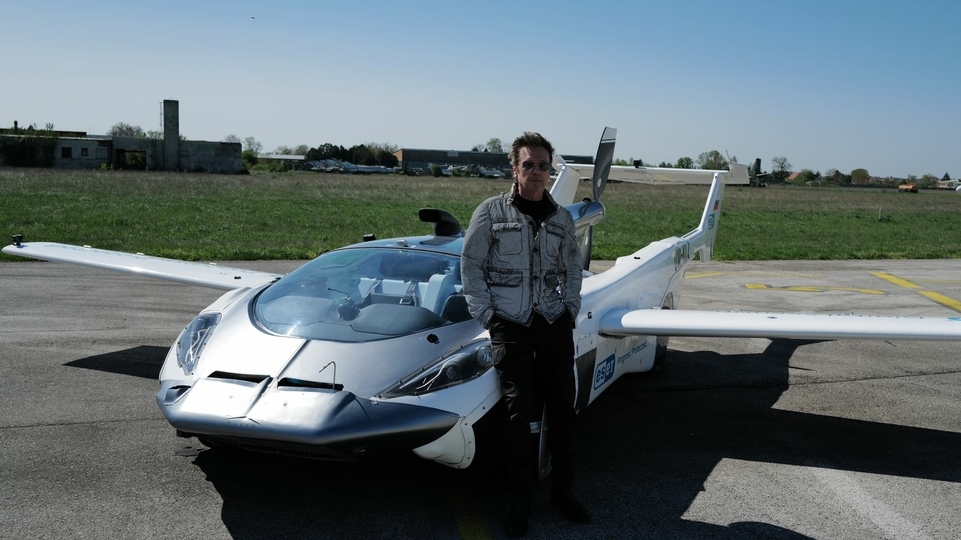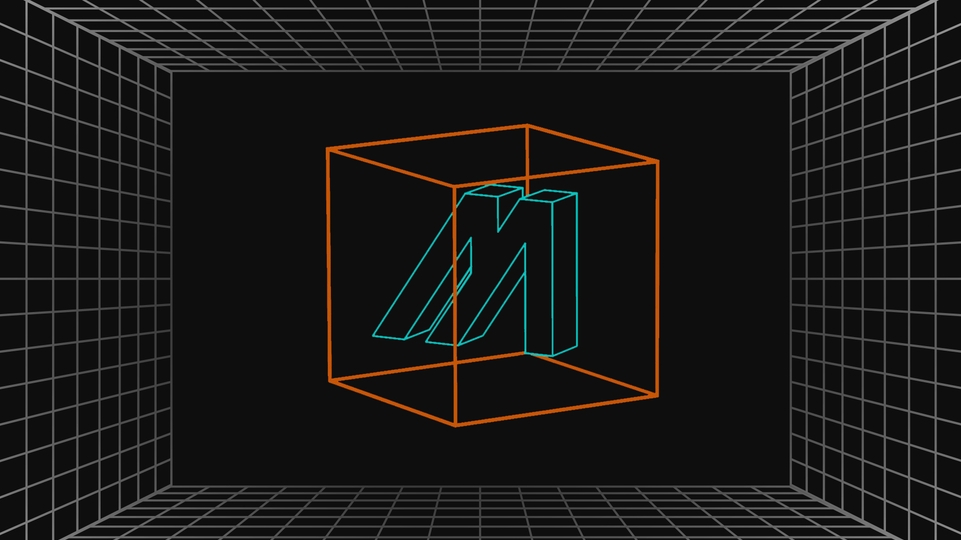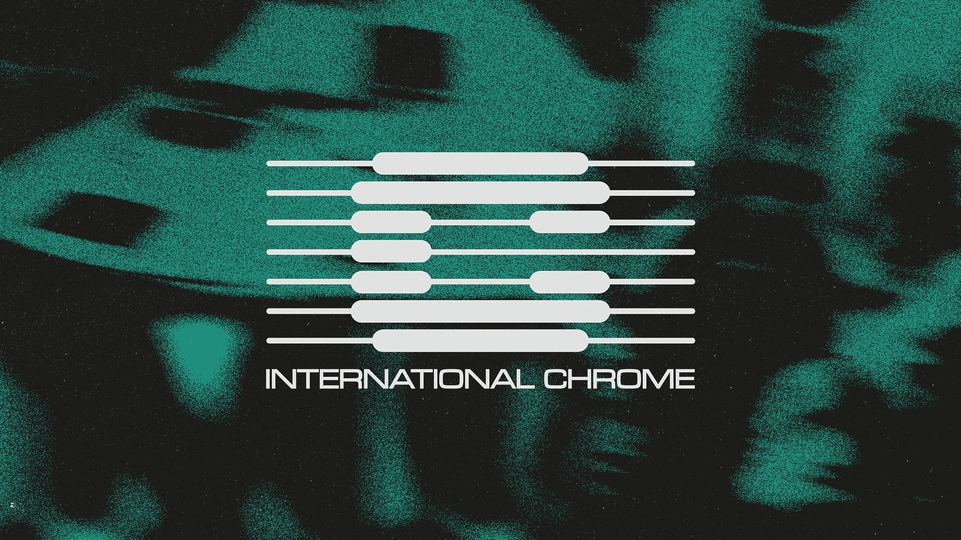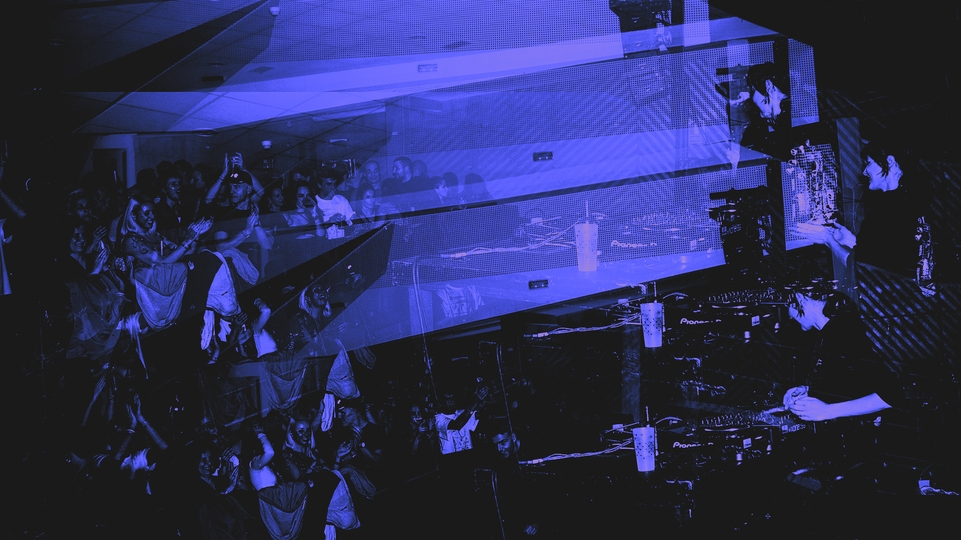
The world-building electro of Cygnus
The prolific Dallas, Texas electro producer builds a futurist cosmology that straddles sci-fi obsession and quiet storm roots, with unexpected brightness. Marke Bieschke catches up with the artist about his process, and his stunning recent LP 'LASER Mode'
In Haruki Murakami's classic 1994 magic realist novel The Wind-Up Bird Chronicle, lowly functionary Toru Okada sets off in search of his missing cat, journeying through a series of increasingly surreal, often violent timelines involving floating jellyfish, red-hatted clairvoyants and ominous donut shops. None of these adventures suggest any interest in retro-futurist electro from Texas. So it’s a bit of a shock to see Okada’s name pop up as a featured guest on Dallas producer Cygnus’ 2020 EP ‘Black Magic Orchestra’ — along with that of Yukihito Tsuge, the twisted philosophical mastermind behind several attacks on Tokyo in darkly political 1993 anime Kidou Keisatsu Patlabor The Movie 2.
Manifesting characters from sci-fi and literature as musical collaborators isn't unusual at all in the ever-unfolding space/time cosmology of Cygnus, a world-building project that has grown over the past decade to include dozens of releases mapping labyrinthine narratives over expansive, organic machine funk. (‘LASER Mode’, his 10th album, came out in June on Biosoft Records.) Liner notes brim with Möbius Cubes, Voodoo clerics, Personal Entanglement Engines, and the intricate adventures of the Mars-colonising Gladstone family: Malcolm, Naomi, Isaac, Xavier, Victoria. Track titles like ‘African Aerospace Consortium’ and ‘Vectra Datasonix’ abound.
“All I do is read sci-fi,” the artist also known as Phillip Washington says with a laugh over Zoom, his liquid eyes sparking beneath a cascade of dreads as a slight Texan drawl wreathes his words. “There’s a stream of universal communication that comes from speculation. The juncture where a lot of my themes and concepts emerge from reflects a kind of mental tranquility, mixed with hardcore nerdiness. It’s a peaceful state where time has a liquid quality rather than constantly being chopped up. I advocate any kind of technological endeavour that promotes internal harmony.”
Techno mysticism and sphinx-like aphorisms are baked into electronic music’s roots, of course. But the Cygnus expanded universe comes with a couple of curveballs. With his detailed mythology and references to Black secret technology, you’d expect Cygnus to trace his lineage directly back to the aqua-cosmos of Drexciya and other foundational Detroit Afrofuturists. But it turns out that Cygnus’ origin is much more Sade than Transmat.
“I grew up listening to smooth jazz and quiet storm stuff,” Washington said. “That was what my parents played at home, and what I was immersed in when I started making music. I wouldn’t know how to define the parameters of genres like techno and electro until later in my teens. I loved the production of ’80s music. I was fascinated by the programmed repetition of the Linn drums and pads, and the bright sounds of the synthesisers.” His quiet storm background comes through in album titles like ‘Smooth Operator’ and ‘The Oasis’ (named for a Dallas smooth jazz radio station), and tracks like ‘Voyager Mayne’, a reconfiguration of Herbie Hancock standard ‘Maiden Voyage’.
Another major influence was video games.“Playing games like Mega Man, the music was really inspiring,” Washington says. “It was part of my love for computers in general. Most of the time in the ’80s, you’d see a computer and it would be just this sterile box used for data entry or taxes. I was astonished that you could use it for purely creative endeavours like music. That’s never gone away. Every time I sit in front of a computer, I’m dumbfounded that this dead, cold thing can do something so warm and expressive.”

“I write these whole things so that someone, somewhere in the world can read them and say, ‘He knows! He knows! He knows the secret!’ It’s this almost unimaginable connection through time and space"
It was a video game, in fact, which crystallised Washington’s Cygnus persona. “I was playing Flashback in third or fourth grade, and using this magazine for cheat codes to get to the next level. Suddenly the word ‘Cygnus’ filled the screen. I was electrified. I remember the moment exactly, the soothing 16-bit woodgrain graphics and pale, washed-out colours. I immediately thought, ‘This is me, this is who I am’. It was like a password to a deeply felt emotion, something internal. Later, learning of its meaning as the swan constellation, and its mythological and astrological significance, made it even more multi-dimensional. But for me, it’s still rooted in that moment — seeing my real name, on that TV screen.”
Washington's musical awakening dawned in a fortuitous atmosphere. His father, a doctor, encouraged his interest with piano lessons, and was interested in electronic music himself, filling the house with synthesisers to record ambient “therapeutic medical relaxation” CDs. “In the late ’80s, my dad started buying a lot of samplers and drum machines: Yamaha, Roland, Akai,” Washington says. “He got a computer for the studio that had an early version of Cakewalk, which literally ran on MS-DOS. I would get on there while he was at work and look at the manual, plug in the synths so they would route into the patch bay for the output, and learned all that stuff.
“My brothers and I were supposed to practice for piano recitals, but once my dad started getting these keyboards that could make big electronic sounds, we immediately jumped over to those, because they were so much cooler! I learned how to sample from cassettes and VHS tapes, putting random stuff together from the TV, or plugging my Walkman into the radio to do a little remix. I think my first remix was a Huey Lewis song with chimpanzee noises mashed over it,” Washington laughs.
Somewhat like that funny combination, but with a lot more subtlety, latest album ‘LASER Mode’ takes a deliberate turn towards levity over 13 enchanting cyber-jams, consciously letting go of what Washington calls “the dark electro thing”, with leisurely riffs and flashes of casual humour. (At one point, Cygnus introduces listeners to his cat and asks if we’d like some sushi.) “Electro is usually noisy, metallic, almost corporate in how brooding and impersonal it can be. I try to get away from that. It’s so strange to me that this was supposedly what Kraftwerk inspired, when they were actually the complete opposite. Kraftwerk was whimsical, playful, stuff a five-year-old could enjoy.
“When I was writing ‘LASER Mode’, I was doing a lot of dancing, teaching myself new moves in my studio, letting myself play around and feel it a little bit more. The sounds are brighter, warmer, not as dystopian, more of a party. I tried to think of Malcolm Gladstone’s robot factory, what that party would be called — of course, it’s ‘LASER Mode’. When I hear piercing, lush, warm chords, people identify those with spectral elements like waves or vibes, but for me it’s direct, like zoom, zap, free of the friction of any strict, rigorous counter-bodies. Ed DMX, who is a great influence to me, once told me that I was using too many chords, but I’m like, ‘I can never use enough!’”
Washington is about to tour ‘LASER Mode’, and has already cued up another Cygnus album for Biosoft, as well as full-length projects for the Barba and Lost Control labels. He’d like to expand into science-fiction writing proper, but finds that the words of his epic flow better through his music — and reach more kindred souls. “I write these whole things so that someone, somewhere in the world can read them and say, ‘He knows! He knows! He knows the secret!’ It’s this almost unimaginable connection through time and space. In a sense I think that’s a very Murakami kind of thing, don’t you think?”






